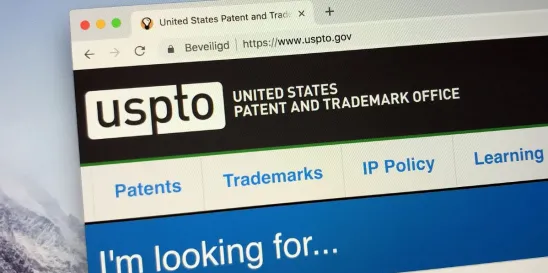In light of the 2023 Supreme Court of the United States decision in Amgen Inc. v. Sanofi, the US Patent & Trademark Office (PTO) published guidelines for PTO employees to use, regardless of technology, to ascertain compliance with the enablement requirement under 35 U.S.C. § 112. (89 Fed. Reg. 1563 (Jan. 10, 2024).) Unsurprising to those familiar with the Amgen decision, the PTO hewed closely to existing practice.
The PTO collected the Supreme Court’s clarifications regarding the relationship between the enablement requirement and an amount of experimentation, namely that although particular disclosure of all embodiments is not required, claims are not enabled if they require more than reasonable experimentation. Regarding the “reasonable experimentation” requirement, the PTO explained that consistent with several post-Amgen US Court of Appeals for the Federal Circuit opinions, it would continue to apply the factors that the Federal Circuit announced in its 1988 In re Wands decision.
Although the PTO intends to continue to rely on pre-Amgen Federal Circuit Wands analyses as instructive, it found particular persuasive force since the Federal Circuit’s decision was affirmed by the Supreme Court in Amgen. There, according to the guidance, the Federal Circuit concluded that the genus claims were not enabled because of the amount of experimentation required to test whether antibodies satisfied certain functional limitations. Thus, because “the scope of the claims was far broader in functional diversity than the disclosed examples, … [and] the invention was in an unpredictable field of science with respect to satisfying the full scope of the functional limitations, … there was not adequate guidance in the specification.”
The PTO also noted that the Federal Circuit’s 2023 Baxalta v. Genentech decision, like Amgen, found claims directed to antibodies that contained certain functional limitations to be invalid. There, the Court, like the PTO, detected no appreciable difference between the reasonable experimentation standard as articulated in Wands and the standard as set forth in Amgen. The guidance canvassed other post-Amgen enablement decisions, all of which the PTO read to support continued reliance on Wands.
Practice Note: Although the PTO says that it will continue to apply the Wands factors as it has before, the Amgen decision may, as a practical matter, make establishing enablement of functional limitations more difficult. Whether examiners—especially those in life sciences technology areas—change the course of their review post-Amgen remains to be seen.




 />i
/>i


